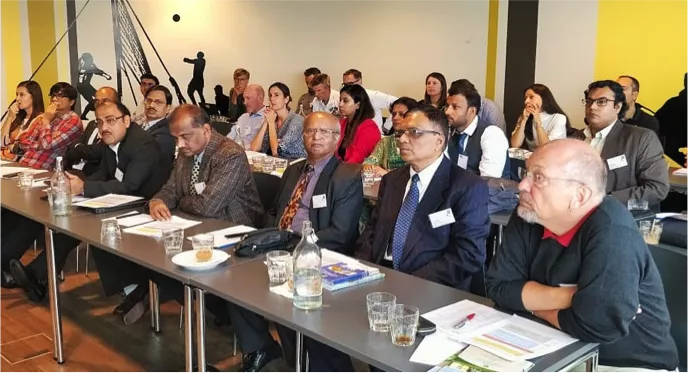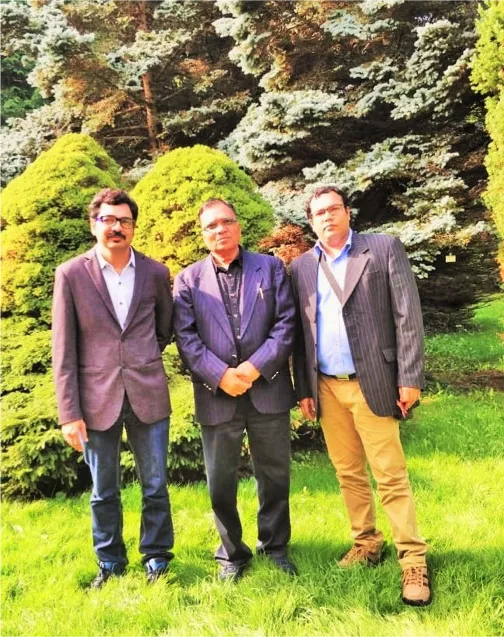A scientific workshop was organised on 6th and 7th of September the Department of Food Sciences, Copenhagen, Denmark. The purpose of the workshop was to explore the possibilities for research collaboration and exchange of researchers and PhD students between India and Denmark in the area of dairy, food ingredients, and water in food manufacturing. The workshop was financially supported by Danish Ministry of Higher education and science. Participants from six Indian organisations were invited to Copenhagen to network with Danish partners. The organising committee consisted of Lilia Ahrné , Professor University of Copenhagen, Richard Ipsen Professor of university of Copenhagen and Sune Kaur-Pedersen, councellor, innovation and Research, Danish Embassy, New Delhi. All together there were 34 participants of which ten were from indian institutions like Anand agricultural university, Anand, Gujarat state, National Dairy Research institute, Karnal, Haryana State, Central Food Research Institute, Mysore Karnataka state, Mother dairy, delhi Others came from various Danish Institutions like University of Copenhagen, Danish technical university, Copenhagen, food companies like Arla Foods, Christian Hansen A/S Danish Innovation Fund, Foss. Professor emeritus Baboo Nair the invitation to join in the workshop as a representative of SASNET-Lund University in general and SASNET Fermented Foods in particular. In addition to my active participation in the group work and the seminar, I also made a small presentation of the network SASNET- Fermented Foods and requested the participants to become members of the network and also send articles for publication in our journal International Journal of Fermented Foods.
During the year 2018 Demark have executed a three year agreement on research collaboration with India with a motto World class Food Innovation towards 2030. Major number of presentations were From Denmark. Some of them were very interesting to me. Like the potential of non-thermal processing methods like high pressure processing, membrane processing and processing with UVlight, pulsed electric fields, ultrasound etc in dairy industry presented by Lilia Ahrne, Professor Copenhagen University. Richard Ipsen made a presentation on how food structure can be engineered using extracellular polysaccharides and nanotubes made of lactalbumin. Egon Bech Hansen of DTH made a presentation on technological problems in relation to processing camel milk in Ethiopia. It seems that the presentation of dennis Nielsen can be a basis for interaction between SASNET- Fermented Foods and his group working with characterisation of microflora on traditional foods. It is some thing which we have been talking for a long time among the scientists of SASNET- Fermented Foods with spcial interest to traditional fermented foods of India. Another interesting presentation was that of René Lametsch which was on proteomics and use of MS and bioinformatics for studying various proteins in food products. Finally there was a presentation from Danish innovation fund on how to make applications to get funds for research from them and what were the requirements for being eligible to get funds I wish to thank Professor Richard Ipsen for inviting me to the workshop and his generous hospitality during the two days. I made many new friends and I will take the opportunity to initiate at least two collaborative projects between Indian and Danish scientists with some room for food departments of Lund University. I also want to thank Dr. Andreas Johansson SASNET Lund University for his support not the least with travel money.
26 Sept 2018, Lund, Sweden.
Baboo M. Nair, Lund University, Sweden.

